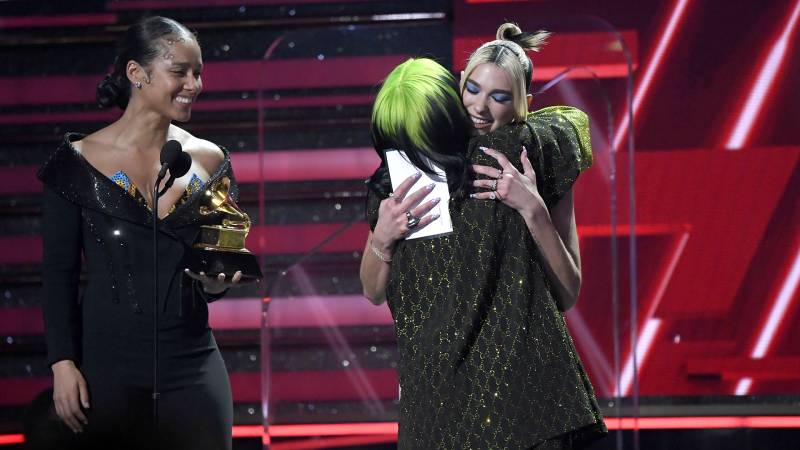There’s no denying that the 62nd Grammy Awards made history with performances by more talented women of different genres, generations and walks of life than any award ceremony in recent memory.
Minutes into the show, Lizzo performed a virtuosic flute solo as part of a medley with orchestral accompaniment, and hit the high notes of “Cuz I Love You” with panache. Later, with her bourbon-soaked, husky voice, Tanya Tucker claimed her place as country music royalty with a rendition of “Bring Me My Flowers Now” with Brandi Carlile on piano.
Billie Eilish’s whisper-sung “When the Party’s Over” and Demi Lovato’s gut-wrenching “Anyone” drew tears. Sheila E. rocked out on the timbales during a tribute to Prince. And jaws fell to the floor as H.E.R. nimbly switched from dexterous piano playing to a wailing guitar solo that would’ve made any Rock & Roll Hall of Famer proud.
Yet hovering over these top-tier displays of talent were the recent allegations of sexism and corruption within the Recording Academy, which presents the Grammy Awards, from Deborah Dugan, the organization’s first female CEO.
After being put on administrative leave for allegedly fostering an abusive work environment, Dugan responded with her own accusations. She said she was ousted for speaking out against sexual harassment from the Academy’s general counsel, Joel Katz. She also said that the Academy’s previous CEO, Neil Portnow—the one who infamously said women need to “step up” in response to questions about sexism in the music industry—had been accused of rape, and that the Academy had covered it up. (Portnow denies the allegations.)


